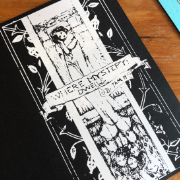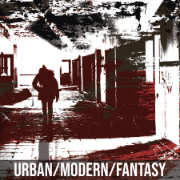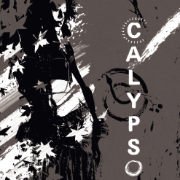Heirs of Sea and Shadow

filed under game design on 14 May 2017 tagged trollbabe, narrative, d10, theory, rpglet, and heirs of sea and shadow
I’m a huge fan of Against the Wicked City and his series of posts (metafilter index to the posts) on romantic fantasy.
So I wrote a game of romantic fantasy; here’s the playtest draft of Heirs of Sea and Shadow.
(Warning, digression alert– if you just want to know about the game skip down to the paragraph right above the bullet points.)
That’s “romantic fantasy” as in tales of adventure in a world where hope and redemption – and empathy and love – are far more important than class level and bonuses to hit.
And as in “romance”, aka love, meaning there’s a strong romantic element.
I’ll be honest. I’m tired of grimdark. It bums me out. I don’t want to play “heroic” fantasy if there’s no chance I can truly win or if the only way to “win” is through violence and meanness.
Not that there isn’t a place for combat in a ttrpg; it’s one of the core human dramatic conflicts. But there are plenty of games that focus on that aspect. I wanted to try to create something else. Something more than just “here’s some rules for combat, you can freeform the rest of it”.
Here’s the thing; in group play, where you, the player, are limited to one avatar, one character, it probably is best to leave that stuff up to the player’s discretion and the groups’ comfort level.
In solo, where you have the liberty of being your character’s author as well as his player, and where the output is utterly private, rules for handling social encounters can’t make you feel uncomfortable in front of a group or reduce your agency. They just open up another area of human experience to explore.
So the design of Heirs – using some mechanical concepts from Trollbabe that I really liked when I played it – is one that emphasizes empathy and diplomacy over combat. Combat is still a viable thing, but it’s dangerous and likely to create as many problems as it solves. Of course, I tried to keep this subtle, but it’s too early to tell if I succeeded or not.
And it’s all from a solo/gmless perspective, with a strong narrative bent.
- simple but sturdy rules for conflict resolution with a d10 (meaning probability is easy to predict)
- sliding scale attributes that reflect your approach to a situation
- characters level out, not up
- has a built-in “fading light” setting (but not so tightly linked that you can’t use it for other settings too)
- included basic d100 (in other words, d10 based) oracle with yes/no and and/but modifiers
Nothing revolutionary here, but I’ve been enjoying the system quite a bit, though I haven’t yet developed a full campaign for it. It was fun to make a “complete” system with art and character sheets and a setting (my personal favorite part of the process) even if it is kind of mini!
I’m still not 100% on the name but I couldn’t think of one I liked better.
This is a PLAYTEST DRAFT and shouldn’t be considered perfect or well-tested or as some sort of final word or anything. As usual, any suggestions, feedback, and the like are welcomed and greatly appreciated.


